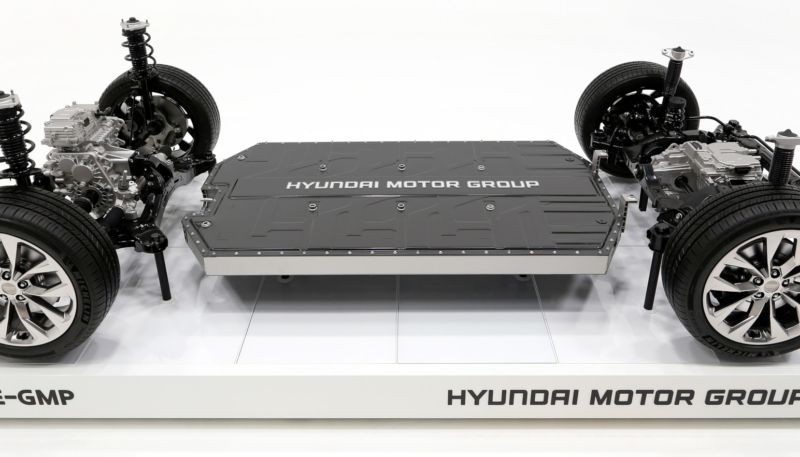Well-connected Apple industry analyst Ming-Chi Kuo says Apple will collaborate with Hyundai on its first Apple Car, and the first vehicle’s chassis will be based on Hyundai’s E-GMP battery electric vehicle (BEV) platform.
While Apple will collaborate with the Korean automaker on the first model, if things go well, the Cupertino firm could also collaborate with General Motors and European manufacturer PSA on subsequent models, or on vehicles for other markets.
In a TF Securities note shared by MacRumors, Kuo confirms recent reports of a potential Apple Car partnership with Hyundai. Kuo believes the first vehicle produced by the partnership will have a chassis based on Hyundai’s E-GMP battery electric vehicle (BEV) platform.
Hyundai announced the platform in December. The E-GMP uses up to two motors, five-link rear suspension, an integrated drive axle, battery cells that can provide range over 500km on a full charge, and can be charged up to 80% within 18 minutes through high-speed charging.
Hyundai says a high-performance model will accelerate from zero to 100kph in less than 3.5 seconds and achieve a maximum speed of 260km/h. The carmaker plans to sell 1 million BEV units worldwide by 2025.
Kuo says that by collaborating with automakers like Hyundai, GM, and PSA, Apple will significantly shorten the Apple Car development time and create a time-to-market advantage by leveraging the current automakers’ resources. This will allow Apple to focus on self-driving hardware and software, battery-related technologies, form factor, an innovative user experience, and more.
Kuo says he believes Hyundai Mobis will be in charge of design and production for some Apple Car components, and Hyundai Group affiliate Kia will provide the U.S. production line for Apple Cars. Kuo doesn’t see a launch for the vehicle until 2025 at the earliest, due to the more complicated development time and supply chain management involved.
Kuo suggests Apple’s new vehicle will be marketed as a “very high-end” model, or “significantly higher” than a standard electric vehicle, which will benefit the automaker partners. Foxconn will not be involved in Apple Car assembly or casing orders, predicts Kuo, even though it is already developing electric vehicle parts.


